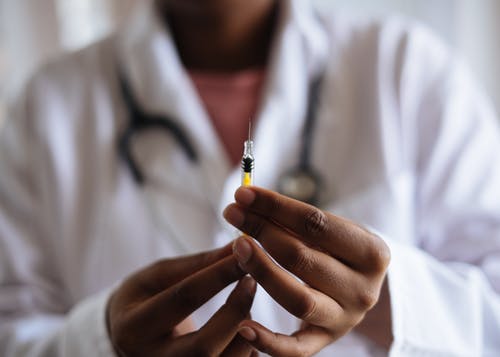The COVID-19 vaccine rollout plan may prolong when we will receive it

Photo by RF._.Studio on Pexels
The CSU announced plans for a vaccine requirement, as long as one of the available vaccines becomes fully approved by the FDA.
December 13, 2020
In the past week, strides have been made in the COVID-19 vaccine race, as pharmaceutical giants Moderna and Pfizer have applied to the Food and Drug Association (FDA) for emergency approval for their vaccines.
This comes after countless trials over the course of nine months. Scientists are desperately trying their hardest to create a vaccine that will help change the state of the pandemic.
If the emergency approval is granted for either Moderna or Pfizer, Americans could start receiving their first dose of the vaccine as early as mid-December. Both vaccines will require two doses given several weeks apart. There are enough doses for an estimated 20 million people by January.
While a COVID-19 vaccine could mark the end of the U.S. epidemic, there are many people who distrust the vaccine instead of supporting it.
To be fair, I understand the lack of confidence people have for the vaccine. It will not be the instant solution to COVID-19 and some public figures do not believe the vaccine is effective. On top of that, the discussion surrounding who gets the vaccine first has become a topic of debate.
Recently, the UK government gave emergency authorization to Pfizer’s COVID-19 vaccine. There, the government decided that the first recipients of the vaccine would be members of the National Health Service (NHS). This is a reasonable decision made by the UK government because these are the frontline workers who are in immediate contact with COVID-19.
Similarly, here in the US the Centers for Disease Control’s (CDC) Advisory Committee on Immunization Practices voted to recommend two groups who should receive the vaccine first are the healthcare workers and the residents at long term care facilities. Beyond these two groups is where things start to get tricky.
Those with pre-existing conditions at risk of being hospitalized and obesity are being considered as the next groups to receive the vaccine by the CDC. Governors would then have to face determining whether they must factor in race as many minority groups have faced disproportionate rates of hospitalization and death from the coronavirus as they will be the ones to choose what hospitals the vaccines will be sent to.
Essentially, it is a pecking order.
According to Chase Danner and Matt Stieb for New York Magazine, it is highly unlikely Americans will be able to choose which vaccine they can get and would receive the vaccine available at the time. If all goes well with the plan, a majority of Americans will be able to receive the vaccine by June of next year.
Which begs the question: will CSUSM students be required to get the vaccine once available?
It is hard to tell whether we will have to be required to get vaccinated based on if the FDA will grant the emergency approval to either Moderna or Pfizer anytime soon. Once the vaccine is widely distributed then comes that decision.
But it doesn’t hurt to think about the future. I don’t think we should be worried about if the CSUSM or even the CSU system will implement a COVID-19 vaccine requirement for students until the time comes.
Until then, we should wait to see what will happen the next few days in regard to the vaccine and its approval.





